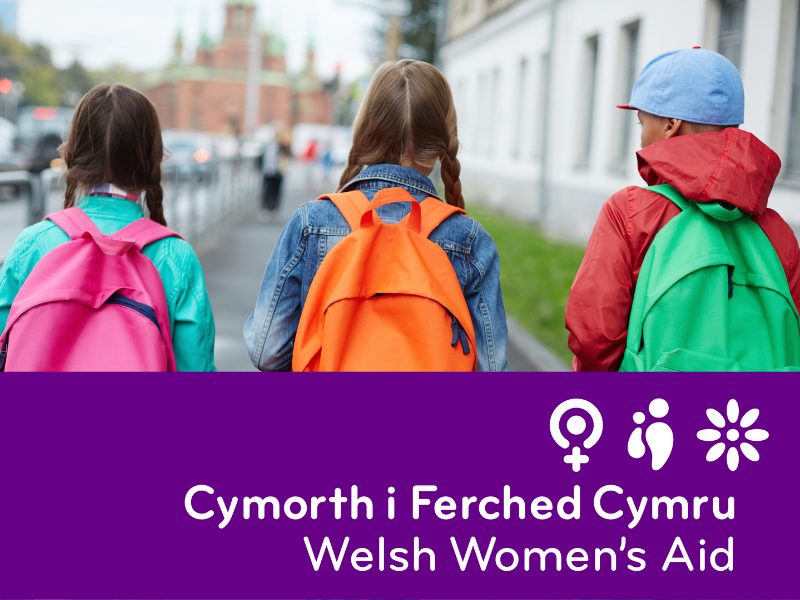
Girls and young women should be able to access education without the fear that they will be harassed by peers, teachers lecturers, or others. The Estyn “We don’t tell our teachers” report published today, horrifyingly shows that this is not the case. It highlights that our schools sadly reflect the wider society they are situated within, with attitudes and behaviours rooted in misogyny and gender inequality rife across schools. This is shockingly demonstrated in the report by the evidence that, “although they acknowledge that it is wrong, many boys say that sharing nude photographs of girls amongst their friends and boasting about the number of nude photographs they have in their possession is commonplace.”
The report shows that sexual harassment, sexism and misogynistic behaviour is often normalised and accepted by young people and their teachers, meaning that it remains unseen within schools and wider culture, allowing it to prevail.
Welsh Women’s Aid are pleased to see the report highlights a whole school approach that centres creating a culture of equality, respect and well-being as the most effective response. The report rightfully identifies educational professionals need adequate training and support to enable them to have a proactive approach to promoting and celebrating equality and diversity. It also notes the vitally important role of external expertise in supporting the delivery of this, as well as enabling effective referral routes to support.
Specialist services across Wales work with children, young people and their wider communities to prevent violence against women and girls and provide support that empowers young survivors to live free from abuse. Unfortunately, this work is chronically underfunded and often not included with local authority strategic VAWDASV plans or commissioning.
Sexual harassment in education is deeply gendered in its nature. There is significant evidence and research on the intersectional nature of violence against women and girls, including sexual harassment. While the report looks at the intersecting nature of harassment experienced by LGBTQ+ pupils, we would advise that further work needs to be carried out to effectively engage and centre the voices of girls and young women who identify as Black, Asian or disabled. The experiences of Black and minoritized girls and women of sexual harassment is often racialised. It is vital that the voices of many girls and young women are centred in creating a culture where all girls and young women can be confident that sexual harassment and other forms of violence and abuse will not be tolerated.
We are concerned about the focus in the recommendations and the Welsh Governments response focusing on girls standing up to their peers and reporting all cases of harassment. This is putting the onus on girls to change their behaviour rather than tackling the root cause of sexual harassment. This is not only victim blaming (stating that the issue is that girls are not reporting rather than placing the responsibility on those that carry out the harassment and those with the leadership role to prevent it from happening) but it also fails to adequately accept the pervasiveness of the harassment. Judging by the fact the report notes that, “pupils say teachers often dismiss incidences as trivial or encourage pupils to ignore them”, is it fair to ask girls to report when they have little trust in the fact that the school will respond effectively?
Girls and young women should not have to be taught to stand up to their peers who are abusing them. We should be ensuring that our schools and colleges promote a culture where sexual harassment is not an inevitable occurrence that girls must manage but are places where girls’ right to live free from abuse and harassment are upheld.
We can and should be aiming to prevent all forms of violence against women and girls. Our education institutions are critical in enabling this. We have VAWDASV legislation in Wales that says public bodies, including schools, must prioritise prevention of violence against women and girls. This means we should be aiming for schools that a promote a culture of respect, equality and empowerment for all.
Time and time again women and girls have called for education that teaches boys and men to respect them equally. Education institutions must be clear that harassment, abuse and violence is not acceptable and actively challenge the attitudes and norms that allow for it to continue. There should be clear cross government leadership within the new Welsh Government National VAWDASV Strategy and commitment to investing in the delivery of a whole education approach, that centres the prevention of all forms of violence against women and girls. The next generation of girls should not have to wait any longer for their right to live free from abuse and harassment to be realised.

